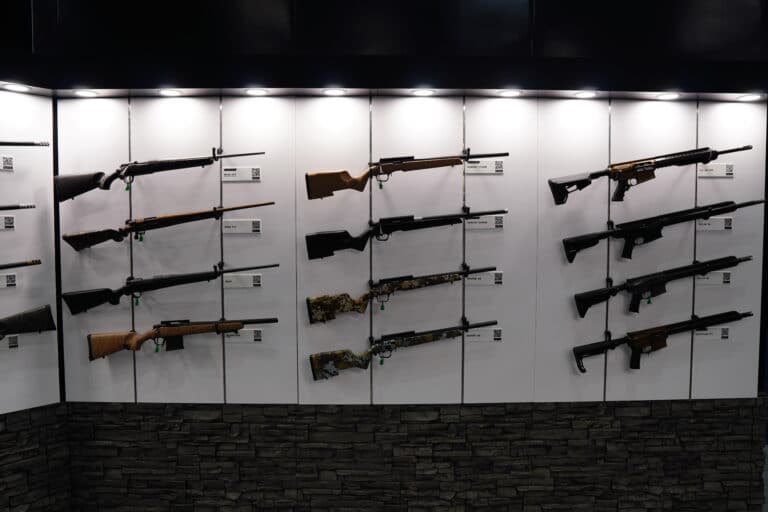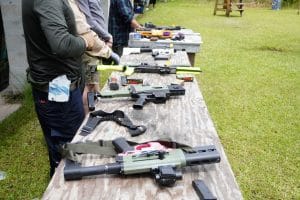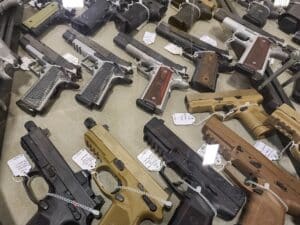The federal government can continue to block non-violent felons from possessing firearms.
That’s what a three-judge panel for the Third Circuit Court of Appeals ruled on Wednesday. It found the federal law barring those convicted of non-violent felonies from possessing guns is consistent with the country’s history and tradition of gun regulation. The court specifically relies on historical laws that disarmed disfavored minority groups to reach that conclusion, despite referring to that history as “repugnant” and “unconstitutional.”
“The earliest firearm legislation in colonial America prohibited Native Americans, Black people, and indentured servants from owning firearms,” the court’s per curiam opinion reads. “Likewise, Catholics in the American colonies (as in Britain) were subject to disarmament without demonstrating a proclivity for violence.”
The ruling is the first from a federal appeals court to deal with the federal prohibition on felons having guns after the Supreme Court created a new standard for reviewing gun cases in New York State Rifle and Pistol Association v. Bruen, which requires modern gun laws to be substantially similar to those in place near the ratification of the Second Amendment in order to be considered constitutional. An established circuit precedent upholding felon-in-possession crimes, even for non-violent offenders, could prove influential as courts flesh out how the new Bruen standard affects modern gun laws.
Like the federal district courts that have considered felony prohibitions post-Bruen, the Third Circuit drew heavily from Heller’s dicta limiting the right to keep and bear arms to “law-abiding, responsible citizens.” The court found that convicted felons could be excluded from “the people” whose rights the text of the Second Amendment protects.
“Based on history and tradition, we conclude that ‘the people’ constitutionally entitled to bear arms are the ‘law-abiding, responsible citizens’ of the polity, a category that properly excludes those who have demonstrated disregard for the rule of law through the commission of felony and felony-equivalent offenses, whether or not those crimes are violent,” the court wrote.
The court said that even though felons do not lose the protections of other amendments contained within the Bill of Rights, it elected to make this distinction specifically for the Second Amendment.
“Our reasoning applies solely to the Second Amendment and does not imply any limitation on the rights of individuals convicted of felony and felony-equivalent offenses under other provisions of the Constitution,” the court wrote.
The case stems from a 1995 misdemeanor conviction of Bryan Range, a Pennsylvania resident who pled guilty to making false statements to obtain food stamp assistance. Though he never served any prison time, Pennsylvania law stipulated that his offense was punishable by up five years in prison.
Under the Gun Control Act of 1968, those convicted of a felony–defined as any crime punishable by more than a year in prison–are permanently prohibited from purchasing or possessing firearms.
Due to his conviction, the federal background check system prevented Range from purchasing a hunting rifle. He sued to have the federal ban struck down as applied to him, arguing that the Second Amendment only permits the disarmament of “dangerous persons” rather than non-violent offenders. The Firearms Policy Coalition represented him in the case.
The group did not respond to a request for comment.
The Third Circuit ruled that the nation’s history and tradition is replete with examples of state legislatures excluding categories of people from possessing firearms whether or not they were considered violent.
The ruling adds to a growing list of federal court decisions analyzing provisions of the 1968 Gun Control Act under the Bruen test. Since that decision in June, federal courts have struck down the federal gun ban for persons under felony indictment, the ban on removing a gun’s serial number, and the gun ban for persons under a domestic violence protection order. Multiple federal courts have now upheld the ban for convicted felons.
The Department of Justice did not respond to a request for comment.






